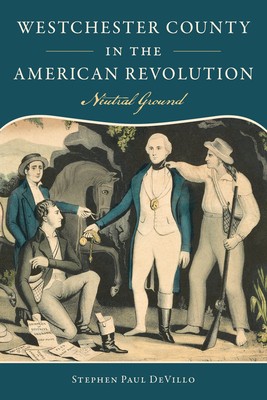
- We will send in 10–14 business days.
- Author: Stephen Paul Devillo
- Publisher: History Press
- ISBN-10: 1467170305
- ISBN-13: 9781467170307
- Format: 0 x 0 x 0 cm, mīksti vāki
- Language: English
- SAVE -10% with code: EXTRA
Westchester County in the American Revolution (e-book) (used book) | bookbook.eu
Reviews
Description
After the 1776 battle of White Plains, Westchester County became known as "the Neutral Ground." But there would be no peace in the Neutral Ground. Occupied by neither side, it was a place where no one could remain neutral amidst clashes by detachments of the contending armies, as well as violence by groups of bandits, vigilantes, and partisans. Families were driven from their homes, and violence flared between once peaceable neighbors. Espionage played a major role as well, culminating in the Arnold-André conspiracy, which nearly ended the war in a British victory. Local historian Stephen Paul DeVillo details the colorful personalities and diverse military units that shaped the course of the conflict.
EXTRA 10 % discount with code: EXTRA
The promotion ends in 23d.15:43:12
The discount code is valid when purchasing from 10 €. Discounts do not stack.
- Author: Stephen Paul Devillo
- Publisher: History Press
- ISBN-10: 1467170305
- ISBN-13: 9781467170307
- Format: 0 x 0 x 0 cm, mīksti vāki
- Language: English English
After the 1776 battle of White Plains, Westchester County became known as "the Neutral Ground." But there would be no peace in the Neutral Ground. Occupied by neither side, it was a place where no one could remain neutral amidst clashes by detachments of the contending armies, as well as violence by groups of bandits, vigilantes, and partisans. Families were driven from their homes, and violence flared between once peaceable neighbors. Espionage played a major role as well, culminating in the Arnold-André conspiracy, which nearly ended the war in a British victory. Local historian Stephen Paul DeVillo details the colorful personalities and diverse military units that shaped the course of the conflict.


Reviews